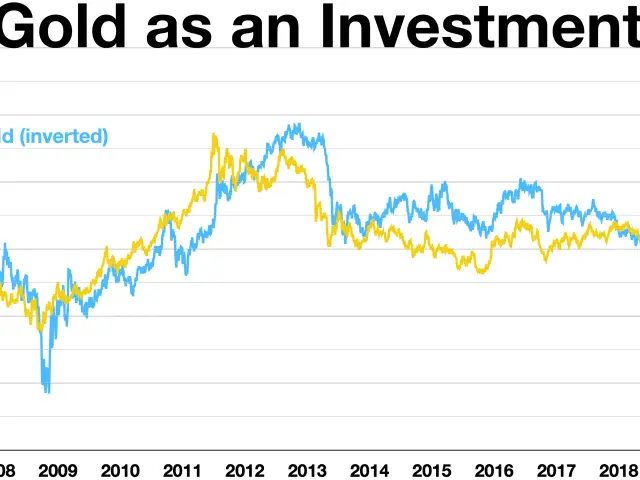Funding for USAID's climate adaptation and resilience initiatives temporarily halted due to bureaucratic ambiguity within the agency
The United States Agency for International Development (USAID) has been thrown into chaos by the Trump administration, with recent developments causing concern among lawmakers and international partners.
Over the weekend, Elon Musk, leading President Trump's Department of Government Efficiency, marked USAID for closure. However, a group of lawmakers signed a letter expressing deep concern over the administration's efforts to freeze USAID activity. They emphasized that it is imperative that we maintain an independent development voice and capability within the U.S. government.
The lawmakers' letter stated that the administration's efforts have created problems that have put the nation at risk and undermined American credibility. This sentiment was echoed by Maryland Senator Chris Van Hollen, who criticized the attack on USAID from a podium in front of the agency's shuttered offices, calling it "an absolute gift to our adversaries."
One of the key concerns is the potential impact on USAID's climate and energy projects situated all over the world. USAID manages around $40 billion annually, primarily distributing funding via grants and technical or policy support. The agency has been collaborating with 66 countries on climate engagement strategies, including global initiatives like the Global Methane Pledge, the Forest and Climate Leaders Partnership, and the Green Shipping Challenge.
The Climate Finance for Development Accelerator, a $250 million initiative, aims to mobilize another $2.5 billion in public and private climate investments by 2030. USAID's flagship initiative, the Sustainable Investment Accelerator, shares a similar goal, aiming to catalyze $2.5 billion in investment by 2030.
The USAID website went dark without explanation over the weekend, adding to the confusion. The Trump administration froze all foreign assistance funded or funneled through USAID in President Donald Trump's first week. This freeze, along with the potential closure of USAID, has raised questions about the future of USAID's climate and energy projects.
The Heritage Foundation's Project 2025 suggests that USAID should cease its war on fossil fuels in the developing world and support the responsible management of oil and gas reserves. This proposal, however, contradicts USAID's focus on transitioning countries to low-carbon economies through initiatives like the Scaling Up Renewable Energy initiative.
Amidst the chaos, there is a glimmer of hope. The President's Emergency Plan for Adaptation and Resilience, a program created by the Biden administration, has nearly $61 million invested in adaptation and resiliency efforts. Furthermore, the early bird pricing for the Power Resilience Forum 2026 ends on Oct 1. This forum, scheduled for January 21-23, 2026, in Houston, TX, will discuss topics such as keeping the electric grid resilient amid heatwaves, wildfires, and storms, involving utilities, regulators, innovators, and investors.
As the situation unfolds, it remains to be seen how the Trump administration's actions towards USAID will impact the agency's climate and energy projects and the United States' role in global climate initiatives.
Read also:
- Russia, according to Zelensky, lacks the prowess for launching another significant offensive.
- Russia's Latest Peace Proposals for Donbas: New Diplomatic Landscape Emerges amid Alaska Summit, Potentially Opening Ceasefire Opportunities
- Amidst India's escalating climate crisis, transgender individuals continue to persevere
- Contentious Discussion Surrounding the Movie Release of "Planet of the Humans"








